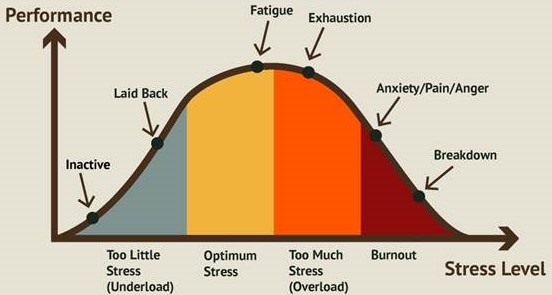Reflections on Leadership
Today’s Tuesday Reading is from Sean McDonald, President of MOR Associates. He can be reached at [email protected] or via LinkedIn.
Since I joined MOR Associates in 2012, I’ve had the opportunity to cross paths with thousands of leaders and learn from their journeys. Together, we’ve explored what it means to lead. As a practitioner of leadership at MOR and in life, I have become a better leader and person. And I am grateful.
You might expect that I have a sharp definition of what it means to lead. However, I have yet to find something that satisfies me. It may be the fluid nature of the many inputs when it comes to leading. It could be a fear that defining it could limit it. As I come across other definitions of leadership, I quickly assess them next to MOR’s deep belief that anyone can lead from where they are, regardless of role, title, or having others connected to them on an organizational chart. This tends to challenge many “traditional” definitions of leadership. As my youngest daughter reminded me this past weekend, “You can lead yourself.” Indeed! Ultimately, I’ve given myself the grace not to feel I have to define leading. I am, instead, taking pride in this notion of constantly reflecting on what it means to lead.
However, I challenged myself for this Tuesday Reading to explore this further and at least break down the components of leading from my observation, practice, and perspective. After you reflect on what I have shared, I welcome your thoughts and feedback on these reflections on leadership.
Leadership as a Choice
As I’ve witnessed and learned from so many leaders, for me, choice rises to the top as the critical input to leading. Choosing requires awareness. It requires some level of data gathering, scenario planning, and intentionality. One of my favorite parts of this job is reconnecting with MOR program alums. When I ask them what they are still practicing, the number one phrase they share is “being intentional.” They are choosing to lead more often than they were previously. Wonderful.
One concern with this word is how simple it may sound. Choosing can be challenging. We each have different perspectives, experiences, access levels, interests, and influence. The inspiration behind this word has not come from big organizational reorg decisions or choosing one vendor or solution over another, but rather, in witnessing the choices leaders make around their mindsets or behaviors. This past Tuesday Reading, Courage, You’ve Had It All Along, is an excellent example. This is the essence of leading. It starts here and builds.
Choice also requires a reflective process. It requires understanding. It needs some belief in a possible future state. These things may happen over a long period or may happen quickly, but when leading, they are happening. This suggests that when operating under habit alone, you may not be leading.
Leadership Requires Movement
A choice alone is not leading. It requires movement. I appreciate this word does not include criteria for what that movement should be. It can be small. It can be a shift in thought and mindset. It can be an evolved behavior. Though significant movements are most noticeable, leading does not require grand movement. This movement is a forward motion toward a desired end state. Others will challenge it, and perhaps you will experience some self-doubt. Movement requires persistence and conviction.
Movement is also about change. And change is a process that needs monitoring. We can appreciate the determination behind the movement, but unchecked, it can turn into inflexibility and stubbornness. Thus, movement requires observation, recalibration, and adaptability. I have had the good fortune of witnessing many MOR program participants on the move. A few lessons learned are noted in this past Tuesday Reading, Building Leadership Community.
Leadership Is About Impact
Leading is also about outcomes and impact. This may be obvious to most. After all, as leaders within our organizations, we are paid to produce results. However, based on the two points above, Choice and Movement, leaders recognize that the choices we make and the movement we progress, even ones initially pointed at ourselves or our own to-do list, will impact others. Evolved behaviors and shifts in mindsets are received by others differently, and these choices and movements over time impact others. The best leaders I have learned from recognize and appreciate our interconnectedness. I have been inspired by their humility, recognizing impact goes well beyond self. And that sometimes, we get things wrong or make mistakes. Leading isn’t always easy and has risks, but it is a powerful force that has and will change ourselves and the world.
There are countless stories of this impact. Some can be found by scanning past Tuesday Readings on MOR’s website. I know there are many stories to come, and I can’t wait to witness, support, and learn from the impact you will make. Please reach out to share your own reflections on leadership.
Keep going, keep leading!
Sean

Which of these reflections on leadership resonates most with you?
Last week we asked where you currently identify on the curve related to the optimum level of stress to maximize performance.
- 23% said too little stress (underload)
- 27% said optimum stress
- 27% said too much stress (overload)
- 23% said burnout (beyond too much stress)
Last week’s survey was very popular, with 1,000 responses more than usual. This speaks to how much this idea captures our attention. We keenly feel the impacts of our stress on our performance. Our responses were varied. Considering our organizations, we can imagine a similar distribution among our colleagues. How does this impact your approach to stress and performance?

- July 2025 (5)
- June 2025 (4)
- May 2025 (5)
- April 2025 (5)
- March 2025 (4)
- February 2025 (4)
- January 2025 (4)
- December 2024 (3)
- November 2024 (4)
- October 2024 (5)
- September 2024 (4)
- August 2024 (4)
- July 2024 (5)
- June 2024 (4)
- May 2024 (4)
- April 2024 (5)
- March 2024 (4)
- February 2024 (4)
- January 2024 (5)
- December 2023 (3)
- November 2023 (4)
- October 2023 (5)
- September 2023 (4)
- August 2023 (4)
- July 2023 (4)
- June 2023 (4)
- May 2023 (5)
- April 2023 (4)
- March 2023 (1)
- February 2023 (1)
- January 2023 (4)
- December 2022 (3)
- November 2022 (5)
- October 2022 (4)
- September 2022 (4)
- August 2022 (5)
- July 2022 (4)
- June 2022 (4)
- May 2022 (5)
- April 2022 (4)
- March 2022 (5)
- February 2022 (3)
- January 2022 (4)
- December 2021 (3)
- November 2021 (4)
- October 2021 (3)
- September 2021 (4)
- August 2021 (4)
- July 2021 (4)
- June 2021 (5)
- May 2021 (4)
- April 2021 (4)
- March 2021 (5)
- February 2021 (4)
- January 2021 (4)
- December 2020 (4)
- November 2020 (4)
- October 2020 (6)
- September 2020 (5)
- August 2020 (4)
- July 2020 (7)
- June 2020 (7)
- May 2020 (5)
- April 2020 (4)
- March 2020 (5)
- February 2020 (4)
- January 2020 (4)
- December 2019 (2)
- November 2019 (4)
- October 2019 (4)
- September 2019 (3)
- August 2019 (3)
- July 2019 (2)
- June 2019 (4)
- May 2019 (3)
- April 2019 (5)
- March 2019 (4)
- February 2019 (3)
- January 2019 (5)
- December 2018 (2)
- November 2018 (4)
- October 2018 (5)
- September 2018 (3)
- August 2018 (3)
- July 2018 (4)
- June 2018 (4)
- May 2018 (5)
- April 2018 (4)
- March 2018 (5)
- February 2018 (5)
- January 2018 (3)
- December 2017 (3)
- November 2017 (4)
- October 2017 (5)
- September 2017 (3)
- August 2017 (5)
- July 2017 (3)
- June 2017 (8)
- May 2017 (5)
- April 2017 (4)
- March 2017 (4)
- February 2017 (4)
- January 2017 (4)
- December 2016 (2)
- November 2016 (7)
- October 2016 (5)
- September 2016 (8)
- August 2016 (5)
- July 2016 (4)
- June 2016 (12)
- May 2016 (5)
- April 2016 (4)
- March 2016 (7)
- February 2016 (4)
- January 2016 (10)
- December 2015 (4)
- November 2015 (6)
- October 2015 (4)
- September 2015 (7)
- August 2015 (5)
- July 2015 (6)
- June 2015 (12)
- May 2015 (4)
- April 2015 (6)
- March 2015 (10)
- February 2015 (4)
- January 2015 (4)
- December 2014 (3)
- November 2014 (5)
- October 2014 (4)
- September 2014 (6)
- August 2014 (4)
- July 2014 (4)
- June 2014 (4)
- May 2014 (5)
- April 2014 (5)
- March 2014 (5)
- February 2014 (4)
- January 2014 (5)
- December 2013 (5)
- November 2013 (5)
- October 2013 (10)
- September 2013 (4)
- August 2013 (5)
- July 2013 (8)
- June 2013 (6)
- May 2013 (4)
- April 2013 (5)
- March 2013 (4)
- February 2013 (4)
- January 2013 (5)
- December 2012 (3)
- November 2012 (4)
- October 2012 (5)
- September 2012 (4)
- August 2012 (4)
- July 2012 (5)
- June 2012 (4)
- May 2012 (5)
- April 2012 (4)
- March 2012 (4)
- February 2012 (4)
- January 2012 (4)
- December 2011 (3)
- November 2011 (5)
- October 2011 (4)
- September 2011 (4)
- August 2011 (4)
- July 2011 (4)
- June 2011 (5)
- May 2011 (5)
- April 2011 (3)
- March 2011 (4)
- February 2011 (4)
- January 2011 (4)
- December 2010 (3)
- November 2010 (4)
- October 2010 (4)
- September 2010 (3)
- August 2010 (5)
- July 2010 (4)
- June 2010 (5)
- May 2010 (4)
- April 2010 (3)
- March 2010 (2)
- February 2010 (4)
- January 2010 (4)
- December 2009 (4)
- November 2009 (4)
- October 2009 (4)
- September 2009 (4)
- August 2009 (3)
- July 2009 (3)
- June 2009 (3)
- May 2009 (4)
- April 2009 (4)
- March 2009 (2)
- February 2009 (3)
- January 2009 (3)
- December 2008 (3)
- November 2008 (3)
- October 2008 (3)
- August 2008 (3)
- July 2008 (4)
- May 2008 (2)
- April 2008 (2)
- March 2008 (2)
- February 2008 (1)
- January 2008 (1)
- December 2007 (3)
- November 2007 (3)
- October 2007 (3)
- September 2007 (1)
- August 2007 (2)
- July 2007 (4)
- June 2007 (2)
- May 2007 (3)
- April 2007 (1)
- March 2007 (2)
- February 2007 (2)
- January 2007 (3)
- December 2006 (1)
- November 2006 (1)
- October 2006 (1)
- September 2006 (3)
- August 2006 (1)
- June 2006 (2)
- April 2006 (1)
- March 2006 (1)
- February 2006 (1)
- January 2006 (1)
- December 2005 (1)
- November 2005 (2)
- October 2005 (1)
- August 2005 (1)
- July 2005 (1)
- April 2005 (2)
- March 2005 (4)
- February 2005 (2)
- December 2004 (1)